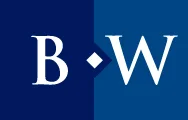More and more, clients are integrating charitable giving into their estate plans. Private foundations and donor advised funds are effective vehicles for facilitating charitable wishes. However, each presents its own set of advantages and disadvantages that clients should consider.
Pros of Private Foundations:
- Flexibility in Giving: Private foundations offer a pool of charitable funds for future donations. Donors have the freedom to choose the causes they are passionate about and tailor their philanthropic efforts accordingly, allowing for a more hands-on approach.
- Legacy Building: Establishing a private foundation allows individuals or families to provide continuing funding for a cause. Generations can work together on charitable grants as a way to discuss family values.
- Control Over Assets: Donors can control all aspects of the foundation from asset management to charitable distributions.
- Compensation: It is possible to employ family members to operate the foundation.
Cons of Private Foundations:
- Administrative Burden: Private foundations often come with administrative responsibilities, including legal compliance, financial reporting, and operational management. The reporting may also open the family up to public scrutiny.
- Minimum Payout Requirements: Private foundations are required by law to distribute a minimum percentage of their assets annually for charitable purposes.
- Potential for Self-Dealing: The potential for conflicts of interest and self-dealing exists within private foundations, as donors may be involved in both the foundation and the organizations it supports. The private foundation rules impose significant financial penalties for violating the rules.
Pros of Donor Advised Funds (DAFs):
- Minimal Reporting: The DAF itself is a public charity — the family’s fund is a sub-set of that charity. The DAF is responsible for all reporting to the state and federal authorities. The donor simply directs the grant to be made.
- Legacy Building: Similar to a Private Foundation, generations can work together to select charitable grants. These family discussions are a great way to shape and share family values.
- Ease of Giving: The donor’s primary focus with a DAF is the selection of the grant recipients. The DAF can assist with identifying new organizations that meet the donor’s charitable intentions. The organizational vetting is already done. The donor only needs to make the gift.
Cons of Donor Advised Funds:
- Cost: The DAF pays a fee to the host organization for investment management and administrative services.
- Limits on Charitable Recipients: Generally, DAFs do not allow for scholarships, international grants or grants to individuals. For some donors this limits the impact they can make. Others may find an alternative route for fulfilling their intentions.
- Investments: Most DAFs do not allow donors to control the investments. Many donors believe that they are a better steward of the funds than the charity and prefer to control the investing.
Either charitable vehicle may be right for you and your family depending on the size of the charitable fund to be established and the time you and your family want to spend. For more information, please contact Heather J. Lange or another BW attorney.


